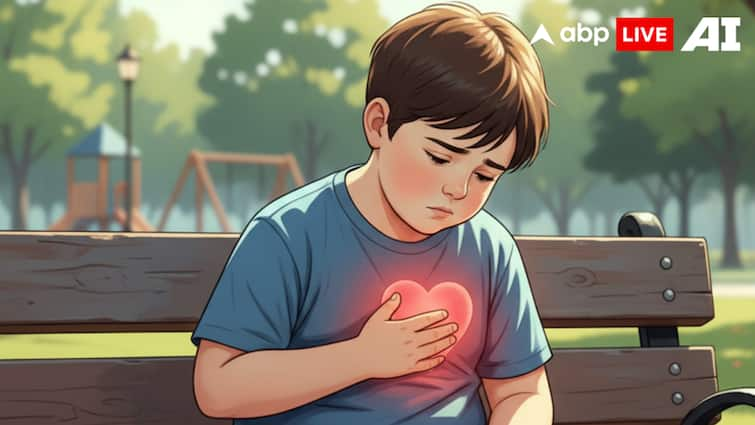{By: Dr Navin Prakash Gupta}
Childhood obesity isn’t just about how a child looks or the number on a scale. It’s a serious health issue, and one of the biggest concerns is the effect it can have on the heart. Many parents don’t realise that the strain from extra weight can start early, quietly setting the stage for serious heart problems later in life.
ALSO READ: World Alzheimer’s Day 2025: Beyond Memory Loss – Warning Signs Families Shouldn’t Ignore
How The Heart Feels The Strain
When a child carries too much body fat, their body has to work harder just to get through the day. The heart, after all, is a muscle, and it pumps blood to every part of the body. But in an overweight child, the heart must pump more blood than normal to keep up. Over time, this extra workload can make the heart grow thicker, stiffer, and less efficient.
Just like how lifting heavy things every day can tire out your arms, forcing the heart to work too hard all the time can make it weak or damaged.
Spotting Early Warning Signs
The tricky part is that a child may appear healthy on the outside while their heart is quietly under pressure. Some early signs to watch for include:
- High blood pressure (hypertension)
- High cholesterol or triglycerides
- Shortness of breath during physical activity
- Fatigue or low stamina
- Chest discomfort (though rare in young children)
Even in childhood, fat can start building up inside the arteries, which is the same process that eventually leads to heart attacks in adults.
Why We Can’t Wait
Many heart problems that used to affect only adults are now showing up in teenagers and young adults and in some cases, even earlier. That means a child carrying excess weight today could face serious cardiovascular issues in their 30s or 40s, unless action is taken early.
It’s Not Just the Heart
Obesity in children also increases the risk of type 2 diabetes, sleep apnea, joint problems, and emotional challenges like low self-esteem or anxiety. These factors often make it harder for children to stay active, creating a cycle that can be difficult to break.
What Parents Can Do
The good news is that small, consistent changes can make a big difference:
- Encourage Active Play: Kids should get at least 1 hour of physical activity a day
- Limit Screen Time: Less time on phones and TVs means more chances to move around
- Offer Healthy Meals: Focus on fruits, vegetables, whole grains, and lean proteins
- Be Role Models: Children often copy what adults do, show them healthy habits in action
- Regular Check-Ups: Routine doctor visits can help catch and manage heart risks early
Childhood obesity isn’t just a question of weight; it’s a question of heart health. Recognising the risks and acting early can help children build stronger bodies, healthier hearts, and a better chance at a long, active life.
The author, Dr Navin Prakash Gupta, is a Senior Consultant, at Neonatology, Rainbow Children’s Hospital.
[Disclaimer: The information provided in the article, including treatment suggestions shared by doctors, is intended for general informational purposes only. It is not a substitute for professional medical advice, diagnosis, or treatment. Always seek the advice of your physician or other qualified healthcare provider with any questions you may have regarding a medical condition.]
Check out below Health Tools-
Calculate The Age Through Age Calculator


)
